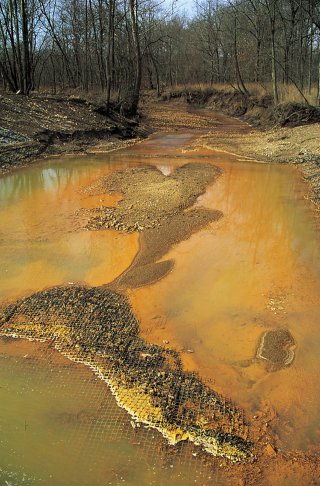Indicators: Acidification
What is acidification?
Acidification is a broad term that refers to the process by which aquatic ecosystems become more acidic. Acid rain and acid mine drainage are major sources of acidifying compounds, lowering the pH below the range where most living organisms function. Some aquatic ecosystems can also be acidic due to natural causes, e.g., high levels of organic compounds or presence of acid producing vegetation in bogs. Acidification can be measured by testing for acid neutralizing capacity (ANC), which is the ability of a water body to reduce the effect of a strong acid.
Why is it important to evaluate acidification?
Acidification can have adverse effects on fish, vegetation, and other aquatic organisms. Acid-sensitive organisms cannot tolerate high levels of acidity or changes in acidity levels.
What can acidification tell us about the condition of water?
Most living organisms, especially aquatic life, function at the optimal pH range of 6.5 to 8.5. Sufficient ANC in surface waters will prevent pH levels from straying outside the range in which aquatic life can function. When ANC values are low, the water is considered acidic and can be either directly or indirectly toxic to aquatic organisms. Acidification can also release toxic metals from soils into the water.
How is this indicator used in NARS?
Two surveys collect data on acidification, data is available on the NARS data page.
| NLA | NRSA | NCCA | NWCA | Indicator Type |
|---|---|---|---|---|
| X | X | Core Indicator | ||
| Research Indicator |

